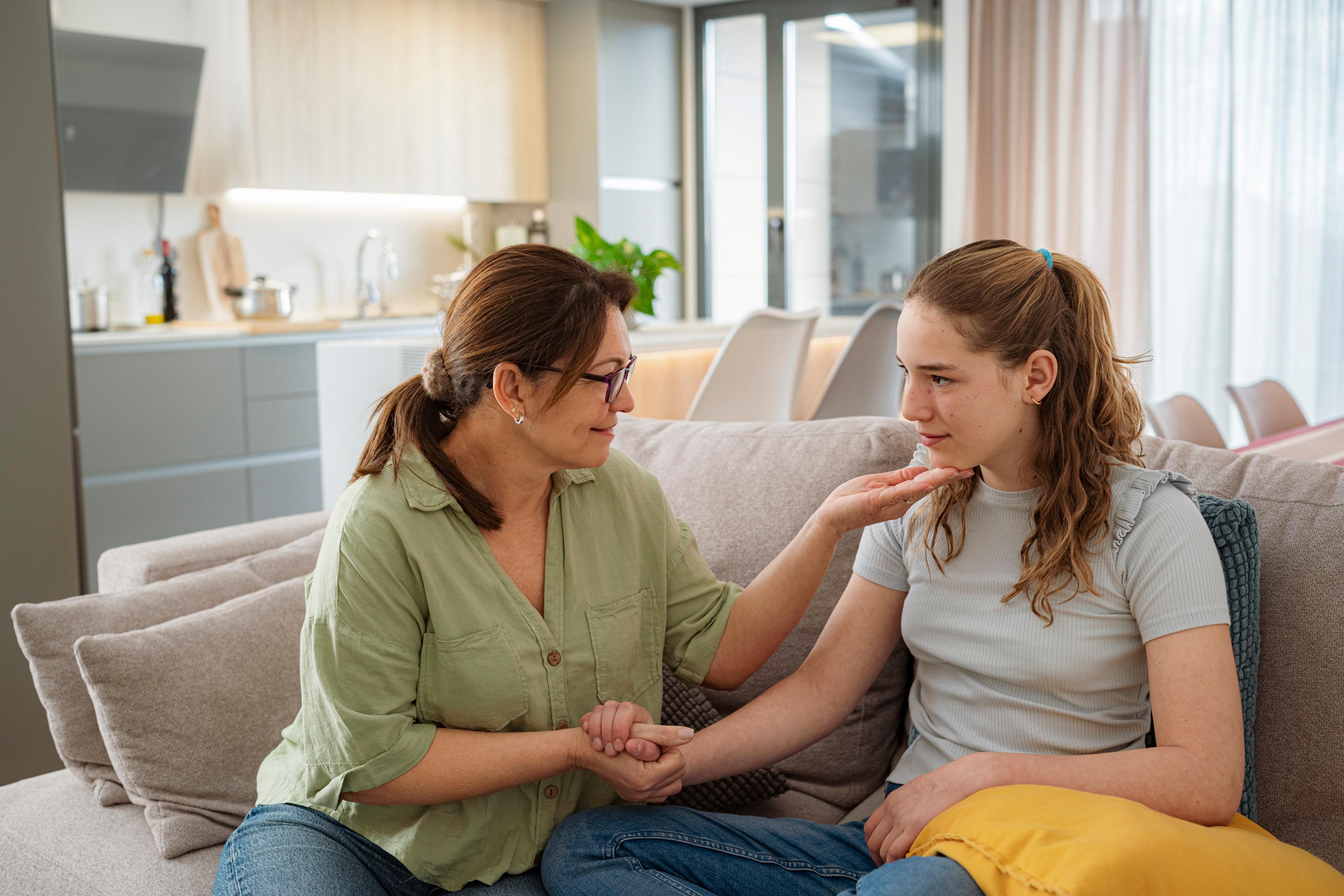How to Talk to Children and Teens About Suicide

Lindsay Knake
| 4 min read

Suicide is the second-leading cause of death for Americans age 10 to 34, according to the U.S. Centers for Disease Control and Prevention. And it’s been on the rise. Deaths by suicide among Americans age 10 to 24 has increased by nearly 60% since 2007.
While it is a challenging and painful topic to discuss, talking proactively to children and teens about suicide is a key part of prevention. Talking about suicide does not make a person more likely to take their own life, according to research.
Whether or not your child or teen has shown signs of depression or self-harm, talking about suicide can help them and help your kids learn to recognize signs of suicidal ideation in their friends and peers. Here are ways you can talk to your kids about suicide.
How to prepare to talk to kids about suicide
Before you talk to your kids, know the signs of suicide. According to the American Psychological Association (APA), common signs include:
- Withdrawal from friends, family and social activities
- New impulsive or destructive behaviors such as alcohol and drug use
- Sudden drop in grades and schoolwork
- Physical changes in hygiene or dress
- Comments about hopelessness or despair
- A sudden preoccupation with death
- Self-harm such as cutting
- Trying to obtain drugs or weapons
If a child or teen is exhibiting these behaviors, seek medical care immediately. Also note that not all teens will show these signs; some behave as though nothing is wrong.
It’s also important to know risk factors for suicide, which include:
- Depression, anxiety and other mental health disorders
- A history of trauma or abuse
- Impulsive behaviors
- Alcohol and substance use
- Family history of suicide
- Previous suicide attempts
How to talk to children and teens about suicide
Begin conversations from a calm place and be prepared to react nonjudgmentally. It’s important for young people to feel heard and accepted and that they know you care, according to the APA. Regularly ask your kids how they are feeling, and don’t dismiss their hurts or challenges.
Talking in the car, on a walk or after a movie can help kids feel more comfortable with the conversation, according to the National Alliance on Mental Illness (NAMI). Have conversations when the child is having a good day in addition to helping them when they are upset or having a tough day.
For children younger than 10, discussing emotions such as sadness and anger is a way to lay a foundation for more challenging discussions later. If someone the child knows dies by suicide, you could share this in a short and honest way, such as “this person died, and we are all sad,” according to the University of Utah.
Starting around age 10 and depending on the child, you can ask what they know about suicide and teach them about warning signs and suicidal thoughts. Ask them if they have heard friends or classmates talking about suicide or hurting themselves. Having painful thoughts isn’t something to be ashamed of, rather, it is something many people experience and can be treated.
For high schoolers, talk to them like you would an adult, according to the University of Utah. Millions of Americans struggle with anxiety, depression and other mental health problems. Let them know they can always talk to you, and you will work with them to get help. Share resources such as the Suicide & Crisis Lifeline at 988 or NAMI’s Crisis Text Line at 741-741.
The teen’s primary care provider (PCP) is a good place to begin for mental health care, and the PCP may recommend or refer them to a mental health professional for specific, ongoing therapy or treatment.
Blue Cross Blue Shield of Michigan and Blue Care Network can help members find an in-network mental health professional by calling behavioral health access lines listed below:
PPO: Behavioral Health Access Line | 1-800-762-2382
A free and confidential resource that’s just a call away when you need immediate support. Behavioral health professionals answer, 24/7.
HMO: Behavioral Health Access Line | 1-800-482-5982
Connect with a behavioral health clinician if you need help finding a mental health or substance use provider.
Behavioral health clinicians are available for routine assistance from 8 a.m. to 5 p.m., Monday through Friday. For urgent concerns after hours, clinicians are also available 24 hours a day, seven days a week.
Learn more about mental health and options you have as a member to seek help at bcbsm.com/mentalhealth.
Image: Getty Images
Related:





